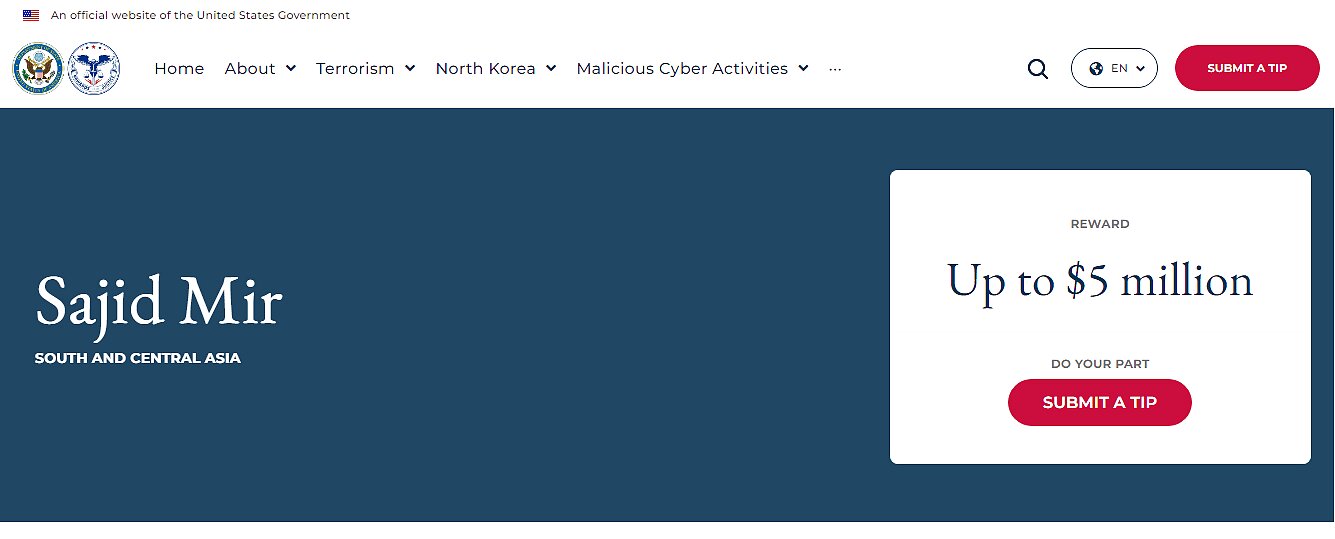
views
China has refused to support a proposal put forth by India and the US at the United Nations, which aimed to designate Sajid Mir, a terrorist associated with Lashkar-e-Taiba and wanted for his involvement in the 26/11 Mumbai attacks, as a global terrorist.
The plan involved blacklisting Mir under the 1267 Al Qaeda Sanctions Committee of the UN Security Council, which would have led to freezing his assets, imposing a travel ban, and an arms embargo.
Last year, China had already put a hold on the proposal, and now they have blocked it completely.
Sajid Mir is considered one of India’s most wanted terrorists and carries a $5 million bounty on his head by the US.
Although Pakistani authorities claimed that Mir had died, Western countries remained skeptical and demanded proof, which affected Pakistan’s assessment by the FATF (Financial Action Task Force) last year.
Who is Sajid Mir?
Sajid Mir, also known by various aliases such as “Ibrahim,” “Wasi,” and others, is wanted by the Federal Bureau of Investigation (FBI) and is on the organisation’s Most Wanted List.
He is wanted for his involvement in the 2008 Mumbai terrorist attacks in India. These attacks, carried out by militants trained by the Pakistan-based organization Lashkar-e-Tayyiba (LeT), targeted multiple locations in Mumbai, including hotels, cafes, and a train station, resulting in the deaths of approximately 170 people, including six Americans.

Mir is believed to have played a significant role as the chief planner of the attacks, overseeing preparations and reconnaissance, and serving as one of the controllers based in Pakistan during the attacks.
Mir is also accused of conspiring to carry out a terrorist attack against a newspaper and its employees in Denmark between 2008 and 2009.
In relation to these crimes, Mir was indicted in the United States District Court in Chicago, Illinois, on April 21, 2011. He faces charges including conspiracy to injure property of a foreign government, providing material support to terrorists, aiding and abetting the killing of a citizen outside the United States, and bombing places of public use. A US arrest warrant for Mir was issued on April 22, 2011.
Convicted by Pakistan, But China ‘Comes to Rescue’
Despite Pakistan’s conviction and claims regarding the presence and death of Sajid Mir, China has taken the step to block his designation as a global terrorist.
Pakistan initially denied Sajid Mir’s presence within their borders, but later, in 2022, he was arrested by Pakistani authorities. An anti-terrorism court in Lahore found Sajid Mir guilty in a terror financing case and sentenced him to 15 years in prison, along with a fine of Pakistani Rs 4,20,000. Pakistan reported this arrest and conviction to the global terror financing watchdog, the Financial Action Task Force (FATF), and has requested the removal of Pakistan from the FATF’s ‘Grey list’.
Despite these developments, China’s move to block Sajid Mir’s designation as a global terrorist indicates their opposition to the proposed designation.
Not the First Time China Has Done This
This is not the first time China, Pakistan’s all weather ally, has pulled a similar move. Beijing has consistently blocked proposals put forth by India and other nations at the United Nations Security Council (UNSC) to impose sanctions on terrorists operating from Pakistan.
China has used “technical holds” to hinder India’s efforts to have the UNSC impose sanctions on Masood Azhar, the leader of Pakistan-based Jaish-e-Mohammed. Azhar is known as the mastermind behind several terrorist attacks in India, including the one in Pulwama, Jammu and Kashmir, on February 14, 2019, targeting paramilitary personnel.

After years of resistance, China finally allowed the Security Council to take action against Masood Azhar in May 2019. Similarly, China eventually permitted the Security Council to impose comprehensive UN sanctions, including travel bans, asset freezes, and arms embargoes, on Abdul Rehman Makki, the deputy chief of Lashkar-e-Tayyiba, after initially blocking such measures, according to a report by Deccan Herald.
China has also blocked India’s attempts to secure UN sanctions against Zaki Ur Rehman Lakhvi, a commander of Lashkar-e-Tayyiba, and Syed Salahuddin, the leader of Hizbul Mujahideen, both based in Pakistan.
Why Does China Keep Doing This?
When questioned by The Hindu in August last year about the reasons behind the consistent “holds” on India’s requests for various terror listings, Chinese Ambassador to India, Sun Weidong, stated that they needed time to study the specific cases. However, he emphasized that China’s position on counter-terrorism cooperation efforts remained unchanged.
It is possible that China objects to the listing proposals being brought by a group of countries, particularly the joint proposals by India and the United States, rather than solely by India. However, China has not provided a comprehensive explanation for these holds.
During a United Nations Security Council meeting in August, India’s Permanent Representative to the UN, Ruchira Khamboj, called for an end to the practice of placing holds and blocks on listing requests without providing any justification. Khamboj expressed deep disappointment that genuine and evidence-based proposals for listing some of the most notorious terrorists worldwide were being put on hold. She highlighted the detrimental effects of double standards and ongoing politicization, which have significantly undermined the credibility of the sanctions regime.
How Did India Respond to the Mir Move?
India strongly criticized China on Wednesday for blocking a proposal jointly tabled by India and the United States at the United Nations.
India responded with a strongly-worded statement during a high-level conference, saying it had ‘righteous reasons to believe something is genuinely wrong with the global counter-terrorism architecture.’
“If we cannot get established terrorists, who have been banned across global landscapes, proscribed by the United Nations – for petty geopolitical interests – then we really do NOT have the genuine political will to sincerely fight this challenge…” India said in its speech, that did not mention China.
“Ten fully armed assailants from across our borders descended on our shores and wreaked havoc over three days. Resulted in 166 innocents being killed, including 26 foreign nationals,” India said. It also noted that the UNSC had also visited Mumbai in October last year and paid ‘collective homage at the site of the attacks, but that regretfully justice continued to elude the victims.’
“The first and most crucial gap – we feel addressing is: avoiding double standards and this self-defeating justification of ‘good terrorist vs bad terrorist’. A terror act is a terror act - period – (and) any justification being used should not be countenanced by anybody.”
PTI contributed to this report




















Comments
0 comment